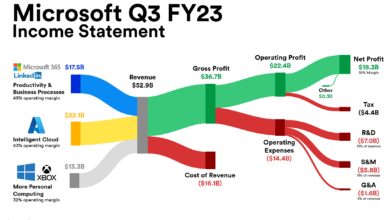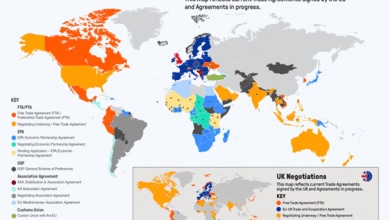Israeli Hostages Protest Turns Violent in Boulder, Colorado

The recent Israeli hostages protest in Boulder, Colorado, has brought urgent attention to the plight of individuals captured by Hamas militants during the ongoing conflict in Gaza. Demonstrators have gathered on Pearl Street, seeking to raise awareness and advocate for the safe return of Gaza hostages, particularly as violence escalates surrounding these sensitive issues. Tragically, a protest against acts of terror transformed into a scene of horror when an incendiary device was unleashed, injuring multiple participants. This attack has been condemned as an anti-Semitic hate crime by local leaders, who emphasize the need for unity amid rising tensions. As local authorities investigate the Boulder fire attack, the community remains steadfast in its support for the victims and the ongoing fight for the liberation of hostages from hostile territories.
In Boulder, a significant movement has emerged focusing on the fate of individuals taken captive during the turmoil involving Hamas, sparking protests that highlight their critical circumstances. The group, known as Run for Their Lives Boulder, has organized regular events aimed at keeping the spotlight on those affected by the hostage crisis in Gaza, particularly following the devastating October 7 attacks. Amid their efforts, a harrowing incident occurred, underscoring the vulnerability of demonstrators and the seriousness of the ongoing geopolitical tensions. Local responses have categorized the violent act as targeted terrorism, also labeling it an anti-Semitic hate crime, indicating the broader implications of such attacks. As the community grapples with the aftermath, it remains committed to advocating for the safe release of those held against their will.
Understanding the Boulder Fire Attack Incident
On June 1, 2025, Boulder, Colorado experienced a horrific fire attack during a peaceful demonstration organized by the advocacy group, Run for Their Lives. This tragic event occurred at the Pearl Street Mall, where individuals gathered to raise awareness about Israeli hostages held by Hamas militants in Gaza. The attack involved the use of an incendiary device, leaving numerous participants injured and sparking outrage within the community and beyond. Local authorities quickly labeled the incident as a hate crime, considering the targeted group’s advocacy for hostages.”},{
Impact on the Jewish Community Following Hate Crimes
The aftermath of the Boulder fire attack has sent shockwaves through the Jewish community, which is particularly sensitive to violence and hate crimes due to historical experiences. Multiple Jewish organizations came together to acknowledge the significance of this attack, stating, “Our hope is that we come together for one another”. In light of recent events, there’s a renewed urgency to address anti-Semitism and violence against minority groups, emphasizing the need for solidarity and support within communities.”},{
The Role of Advocacy Groups in Protecting Hostages
Advocacy groups like Run for Their Lives play a crucial role in raising awareness about issues such as the plight of Gaza hostages. Founded to promote the safe release of individuals taken by Hamas during the October 7 attack on Israel, the group aims to mobilize the community through peaceful activism. Unfortunately, the Boulder incident reveals the risks faced by those advocating for justice and human rights, which can often provoke violent reactions from opposing factions.”},{
Response from Law Enforcement and Authorities
Law enforcement officials, including the FBI, have classified the Boulder fire attack as an act of terror. FBI Director Kash Patel emphasized the targeted nature of this violence, expressing the agency’s commitment to investigating the incident thoroughly. Boulder Police Chief Stephen Redfearn confirmed that a suspect has been apprehended, but the investigation continues to determine the full context and motivations behind the attack.”},{
The Continuing Crisis of Hostages in Gaza
As news of the Boulder fire attack unfolds, the ongoing crisis regarding hostages in Gaza remains a pressing issue. Since the October 7 Hamas attack on Israel, more than 250 individuals have been taken captive, with significant casualties and losses reported over the subsequent months. Currently, 23 hostages are believed to still be alive, underscoring the dire situation that advocacy groups are fighting to bring to light.”},{
Community Resilience in the Face of Violence
In the wake of the Boulder fire attack, the local community has demonstrated remarkable resilience. Witnesses to the violence, including individuals who rushed to aid the injured, exemplify the innate human tendency to unite during times of crisis. The support shown by neighbors and local organizations reinforces the importance of community solidarity against intolerance and violence. These acts of compassion help to counterbalance the darkness of such hate crimes.
The joint statement from the Boulder Jewish organizations reflects a broader sentiment of healing and unity. It acknowledges past experiences with anti-Semitic hate crimes while focusing on building strength through community togetherness. This sentiment of resilience is a powerful antidote to fear and violence, inspiring ongoing discussions about the safety and well-being of all community members.
Legal Implications of Hate Crimes in Boulder
The implications of the Boulder fire attack extend beyond immediate horror, touching on critical aspects of law and justice. As the state’s attorney general, Phil Weiser, prepares to support local prosecutors, questions arise surrounding the legal definitions of hate crimes and terrorism. This case may set important legal precedents concerning the treatment of hate-fueled violence, particularly against Jewish communities and similar groups advocating for humanitarian causes.”},{
The Narrative of Hope Amidst Tragedy
Despite the painful events during the Run for Their Lives demonstration, the broader narrative remains one of hope and perseverance. Many participants, while shaken, continue to advocate for the release of hostages in Gaza, believing in the possibility for a peaceful resolution. The ongoing demonstrations signify that voices dedicated to justice and human rights will not be silenced by acts of hatred.
Prominent figures within the community stress the importance of continuing dialogue and advocacy following tragedies like the Boulder fire attack. They encourage a collective effort toward raising awareness about issues such as the plight of Gaza hostages and fighting against hate crimes, reinforcing the message that community resilience is fundamental in the face of adversity.
Call to Action for Global Awareness and Support
In light of hostages being held by Hamas and the violent incident in Boulder, there’s a growing need for global awareness and support for such humanitarian issues. Advocacy groups are not just drawing attention to these matters but are also calling for action from individuals, organizations, and governments worldwide. Initiatives aimed at the hostages’ release demand comprehensive public awareness and collaborative efforts to impact change.”},{
Frequently Asked Questions
What happened during the Israeli hostages protest in Boulder, Colorado?
During a protest advocating for the release of Israeli hostages held by Hamas in Gaza, an attacker used an incendiary device on June 1, 2025, injuring multiple demonstrators in Boulder, Colorado. This incident, described as a targeted terror attack by law enforcement, was aimed at those marching for awareness of the hostages.
How did local authorities respond to the attack at the Israeli hostages protest?
Law enforcement officials responded quickly to the incendiary attack on demonstrators at the Israeli hostages protest in Boulder. The suspect was apprehended, and investigations were launched by the FBI, with assessments indicating the attack was an act of terror and a hate crime against the group advocating for the release of Gaza hostages.
What is the significance of the Run for Their Lives initiative related to the Israeli hostages protest?
Run for Their Lives is an initiative that began to advocate for the immediate release of Israel’s hostages from Hamas in Gaza. Their protests in Boulder have created a platform to raise awareness and demonstrate solidarity with the victims of the ongoing hostage situation.
What measures were taken by Boulder Jewish organizations following the attack on the Israeli hostages protest?
Following the attack, several Boulder Jewish organizations released a joint statement expressing solidarity with the injured and highlighting the trauma felt within the community. They emphasized the importance of coming together in the face of such violence, particularly in light of rising anti-Semitic incidents.
What ongoing issues are highlighted by the protests for Israeli hostages held in Gaza?
The protests for Israeli hostages focus on the plight of over 250 individuals taken during the Hamas attack in October 2023, with 23 believed to still be alive. These protests aim to keep the issue in public consciousness and advocate for their release, amidst concerns of escalating violence and anti-Semitic hate crimes.
How does the attack on the Israeli hostages protest relate to broader issues of anti-Semitism?
The attack at the Israeli hostages protest in Boulder has been characterized by authorities as possibly motivated by anti-Semitism, particularly given the historical context of hate crimes against Jewish communities. This incident underscores the connection between advocacy for hostage release and the fight against growing anti-Semitic sentiments.
What reactions have been shared by witnesses of the Boulder attack during the Israeli hostages protest?
Witnesses at the Boulder protest reported horrifying scenes of chaos and injury as an incendiary device was unleashed. Accounts detail individuals suffering severe burns and the urgent response from bystanders to assist the victims. These personal testimonies further amplify the seriousness of the incident targeting demonstrators advocating for Gaza hostages.
What safety measures are being discussed for future Israeli hostages protests?
In light of the violence at recent Israeli hostages protests, discussions are underway regarding enhanced security measures to ensure the safety of demonstrators. This includes potential collaborations with local law enforcement to provide protective measures during future events advocating for the release of hostages held in Gaza.
| Key Point | Details |
|---|---|
| Incident Overview | On June 1, 2025, a fire attack occurred during a demonstration in Boulder, Colorado, advocating for Israeli hostages held in Gaza. |
| Nature of the Attack | An incendiary device was used against demonstrators, injuring multiple attendees. |
| Response from Officials | FBI Director Kash Patel labeled it a “targeted terror attack.” Boulder Police affirmed a suspect was in custody. |
| Community Reaction | Jewish organizations expressed concern over the hate crime aspect, urging solidarity and support for the injured. |
| Ongoing Advocacy | The group ‘Run for Their Lives’ has held ongoing events since November 2023 to raise awareness and advocate for the release of hostages. |
| Witness Accounts | Witnesses described horrific scenes with injured individuals, underscoring the chaos and tragedy of the event. |
Summary
The Israeli hostages protest has shed light on the ongoing challenges faced by families of individuals taken hostage in Gaza. Following the tragic fire attack in Boulder, it is evident that the advocacy efforts are more critical than ever. The violent incident not only highlighted the dangers those advocating for peace and the hostages face but also reinforced the need for communities to come together in support and solidarity. The resilience of groups like ‘Run for Their Lives’ emphasizes a persistent call for justice and awareness regarding the fate of the hostages.




